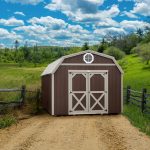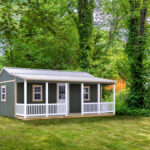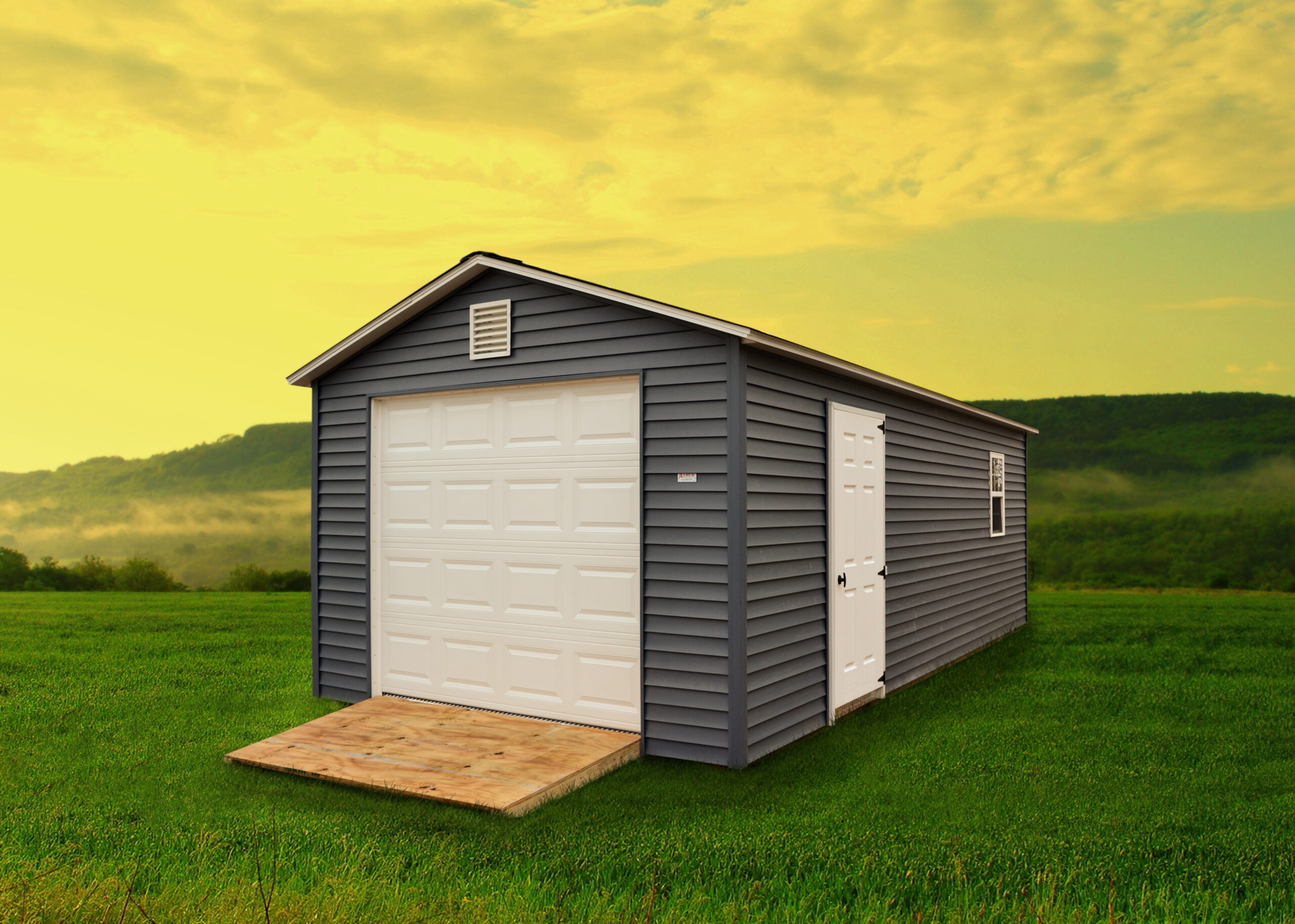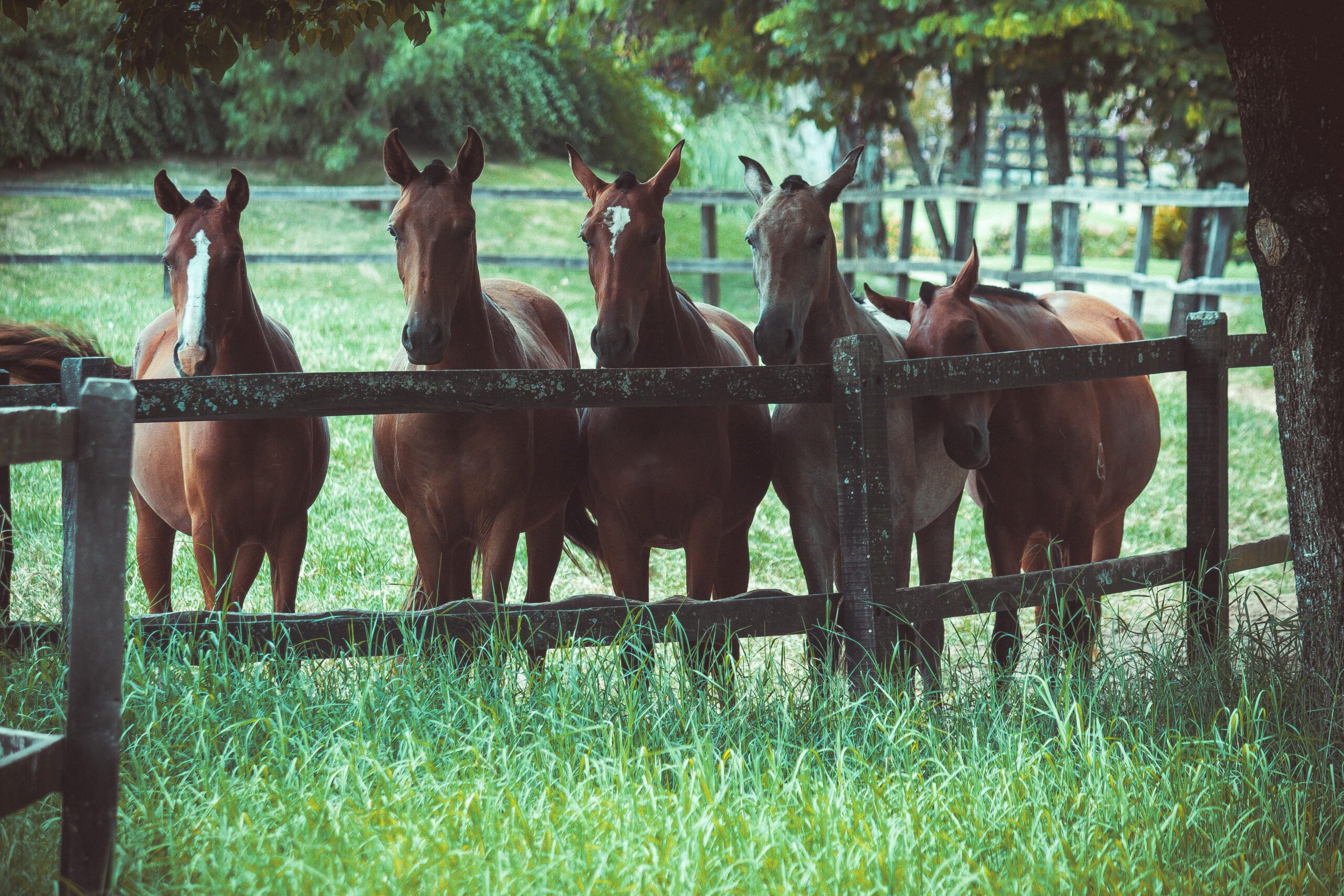
Factors to Consider When Keeping Farm Animals Cool in the Summer
By SchwebAdmin
Animal safety is vital during the hot summer months in the Midwest. There are many things you need to do as an equestrian owner to ensure you are maintaining a safe environment inside your horse barns. As the weather warms up, ensure your Raber Portable Storage animal shelter has adequate ventilation, shade, and fresh water to keep your horse healthy. Here are some of the factors to consider to keep your farm animals cool in the summer.
Install Ventilation
Proper ventilation ensures there is adequate air flow throughout your horse barn. Ventilation is key for a horse’s health and maintaining a safe environment. You can ventilate a structure in many ways, including fans, vents, and opening doors and windows. Fans will circulate air in the structure, keeping your animals cool. When installing fans, use ones approved for agricultural use and hang them in areas where your horses can’t get to them. We offer gable and ridge vents for your structures to allow hot air to escape. Opening your doors and windows will provide more air circulation in the structure, allowing for a cross breeze.
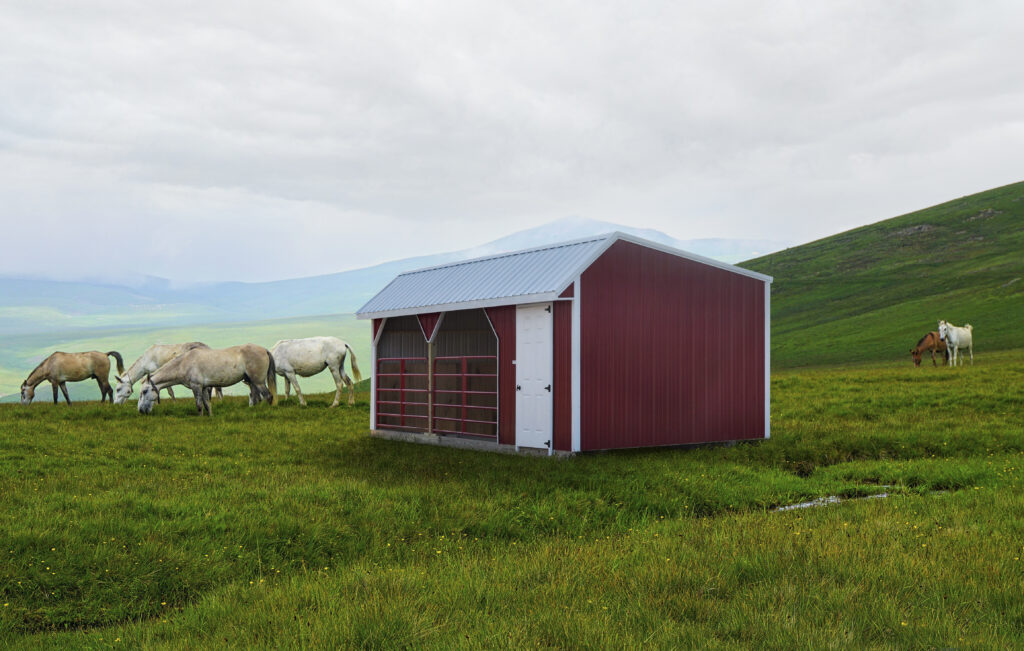
Have Shaded Areas
Having shaded areas is one of the best and most important ways to keep your animals cool, after water. Our standard and deluxe open horse barns provide areas of shade for your horses when they are hot. These structures are great to have in the pastures for a place to cool down. You should also have naturally shaded areas in the pasture, like from trees, so your horses can be out of the sun. If you have limited shaded areas, we recommend bringing your horses outside in the morning or late afternoon, so they’re not outside during the hottest part of the day.
Ensure They Get Enough Light
While shade is vital during Midwest summers, you still need to ensure your horses get enough light. According to EIN Presswire, “horses rely on light to regulate their circadian rhythms—biological processes that influence sleep, hormone balance, immune response, and reproductive health. When those rhythms are disrupted, it can lead to behavioral changes, fatigue, metabolic imbalance, and difficulty in breeding programs” (Malou Oostveen, Fox 59).
Many horse owners will keep their horses stalled inside during the hot summer to keep them cool, but this can affect their behavior and health over time. Allow them to be outside to regulate their sleep-wake cycles, but limit their activity so they don’t get overheated. You can add light therapy systems in your horse barn to provide light during this time, like many owners do during the winter when there isn’t as much sunlight, to help fix their circadian rhythm.
Cool Them Down
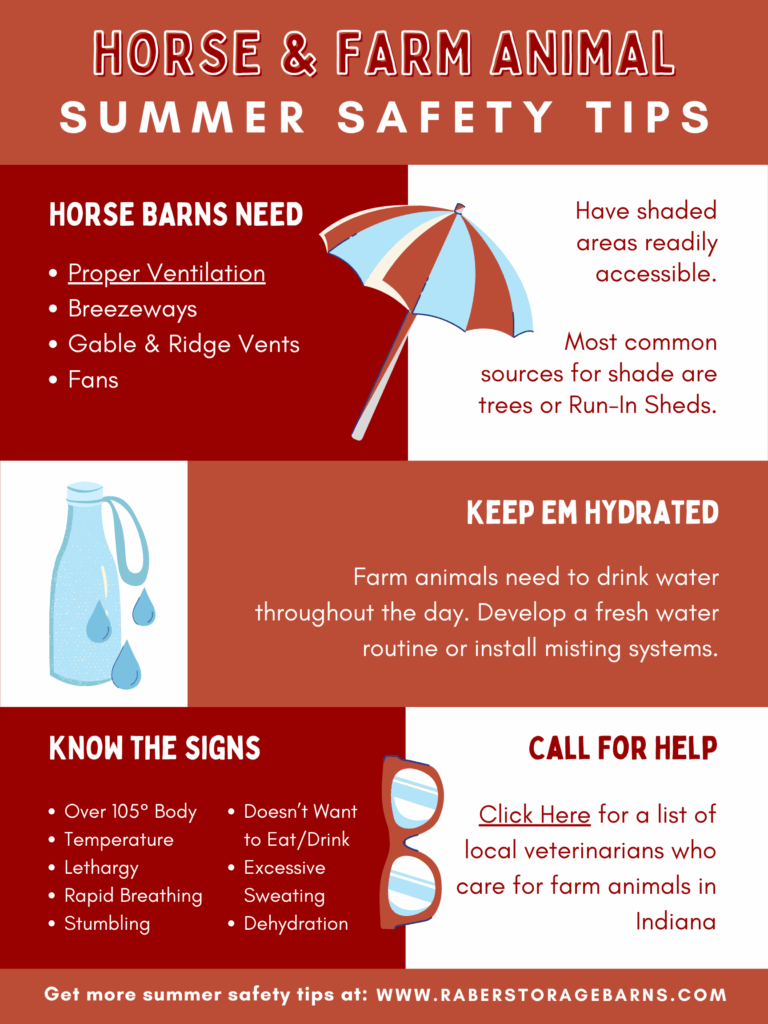
Water
The most important thing you need to cool down your horses is water. They should have access to fresh, clean water at all times to keep them hydrated. Horses consume more water during the summer, so we recommend having a second water source during this time. If your water is warm or stagnant, your horse will avoid drinking it. Regularly clean the water bucket and keep it in a shaded area, like inside your horse barn, so it doesn’t get too hot. Due to the heat, you may have to change the water multiple times a day. You can make this simpler by installing an automatic water trough so your horses have fresh water consistently.
Misting Systems
Misting systems allow you to spray cool mist on your horses to keep them from overheating, usually accomplished with fans. We’ve found that these systems work best in barns with good airflow so moisture doesn’t build up inside. Sometimes, your horses can get spooked by these, so they may not be a viable option if your horse is easily startled. If these systems aren’t a good choice for you, we recommend hosing your horses down in the bath area to cool them down.
Monitor Your Animals Regularly
When dealing with the Midwestern heat, you must monitor your animals for signs of dehydration, stress, heat stroke, and other complications to ensure their health is maintained. You should be limiting their activity, especially when it’s extremely hot and humid, so your animals don’t get overheated or overworked. We recommend riding in a cooler part of the day to prevent this. When monitoring your animals, consult your veterinarian if anything looks wrong, especially if they show signs of heat stroke. Check out our Summer Safety Checklist for information on signs of heat stroke and veterinarians in Indiana who care for farm animals.
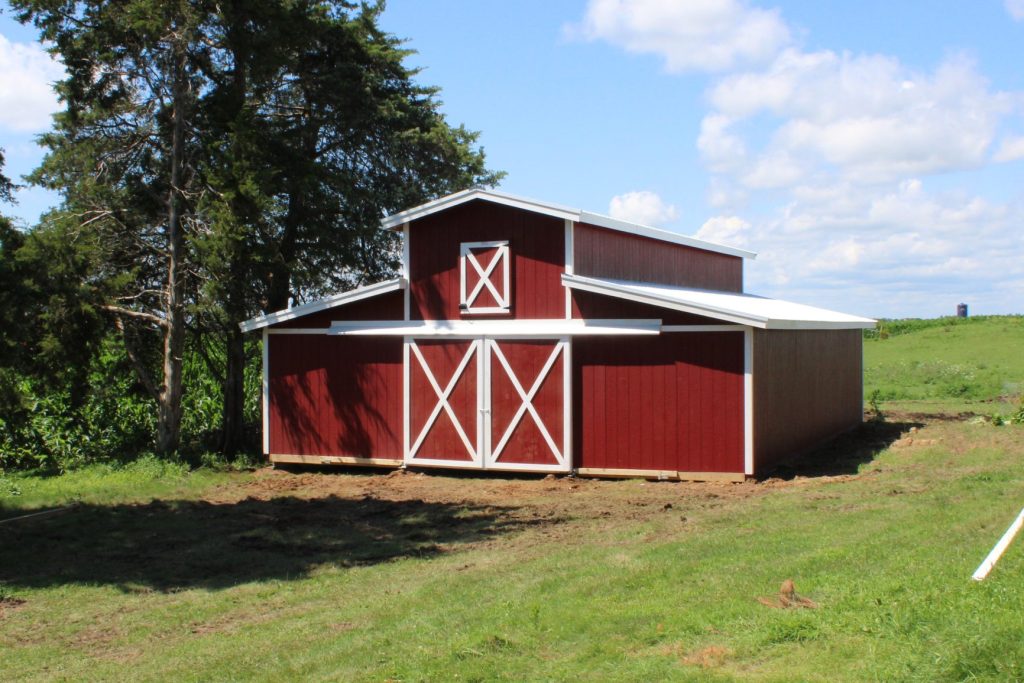
Get Animal Shelters and Horse Barns with Raber
At Raber Portable Storage, we offer many styles of horse barns that are designed to keep your animals safe during extreme weather. Our structures are fully customizable, so you can build a barn that is perfectly tailored to you and your horse’s needs. If you’re ready to get a durable horse barn for your pasture, check out our in-stock inventory of pre-built structures or design a custom barn with our 3D Builder. We have a sale going on right now – all standard and deluxe horse barns are 5% off, and all monitor horse barns are 7% off for a limited time. Contact us today to learn more.
Additional Resources: Indiana Vets That Care for Farm Animals
- Grove Veterinary Clinic – Liberty, IN
- Regional Veterinary Services – Springville, IN
- Purdue University Farm Animal Hospital – West Lafayette, IN
- All Animals Veterinary Clinic – Lebanon, IN
- Farmstead Veterinary Services – Bloomington, IN
- Southern Indiana Equine – Scottsburg, IN
